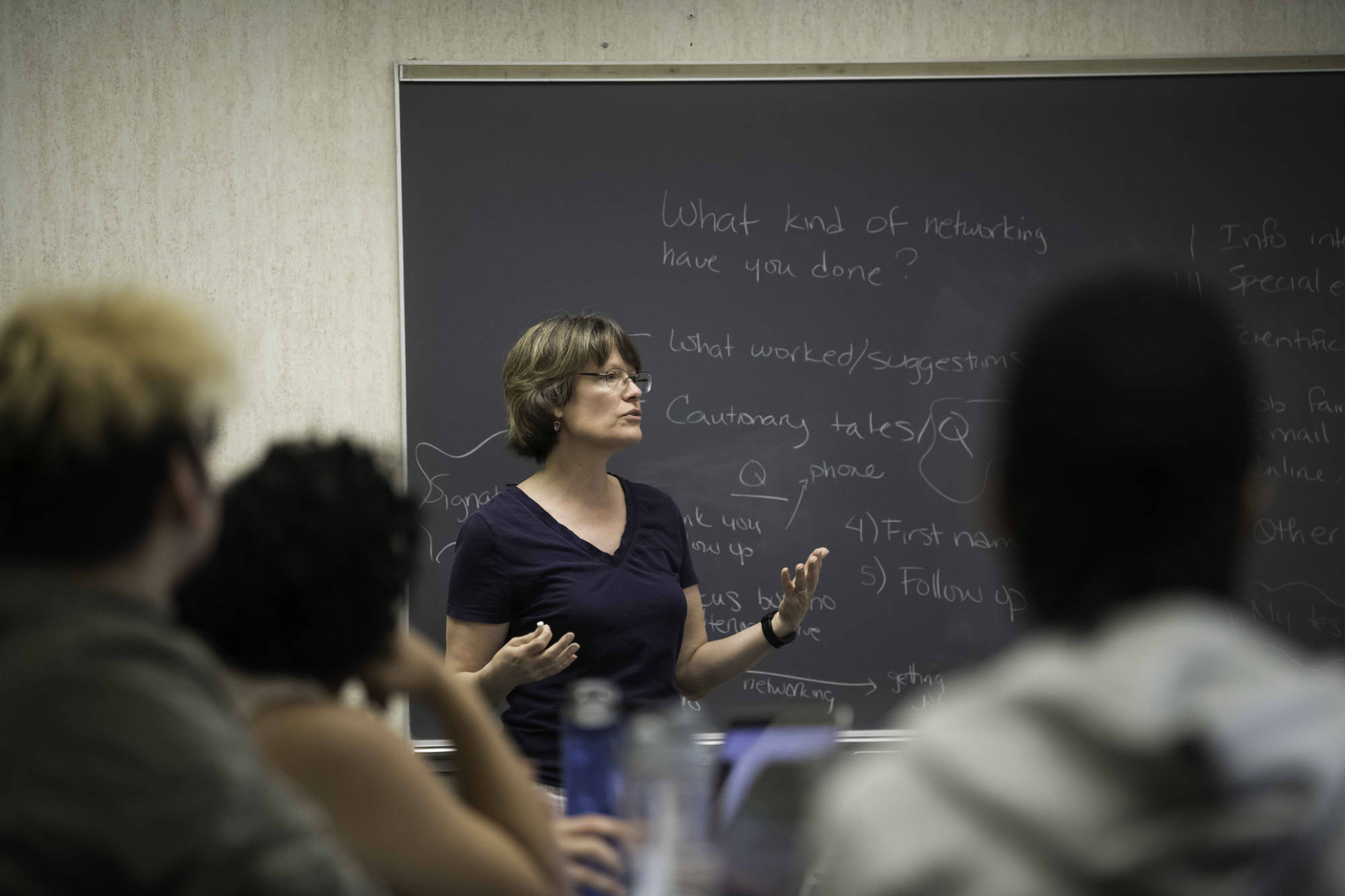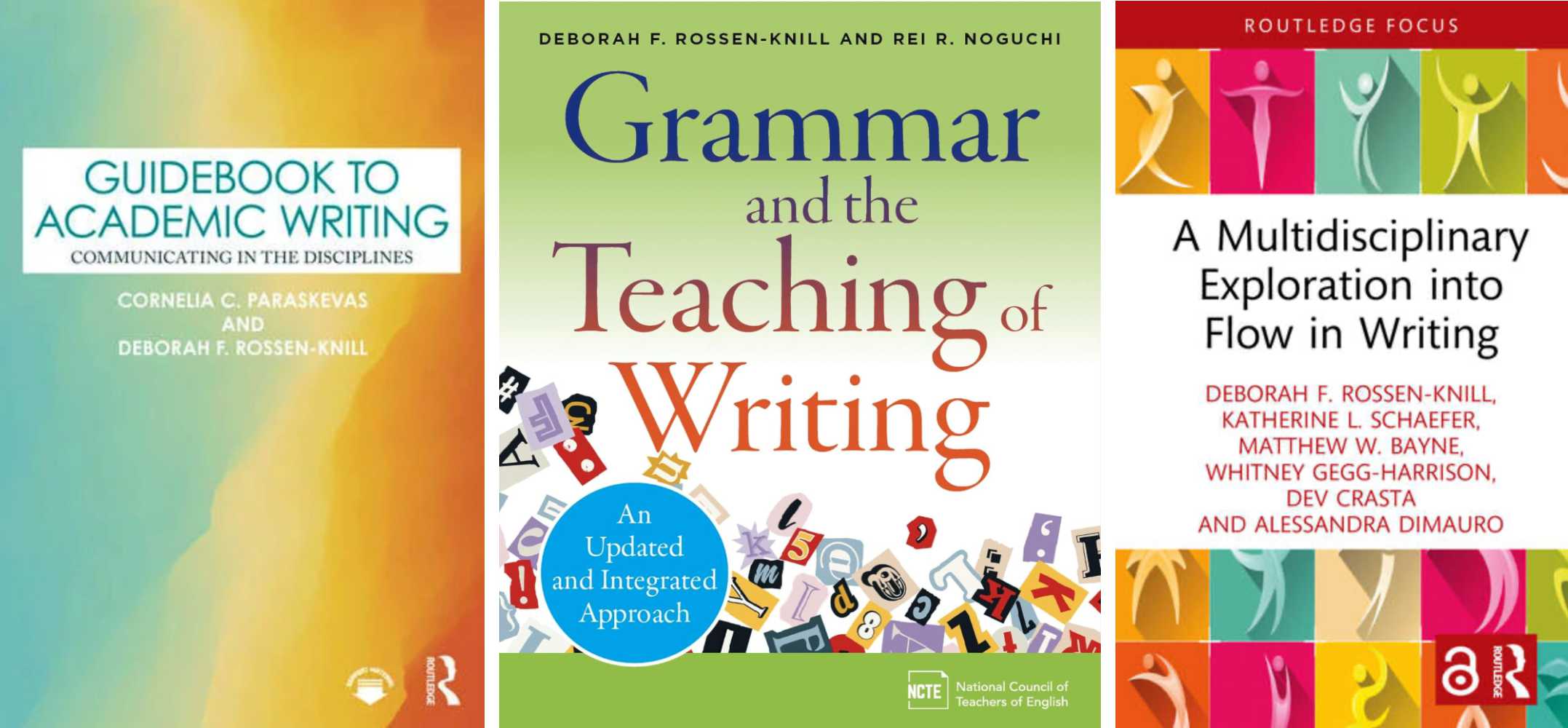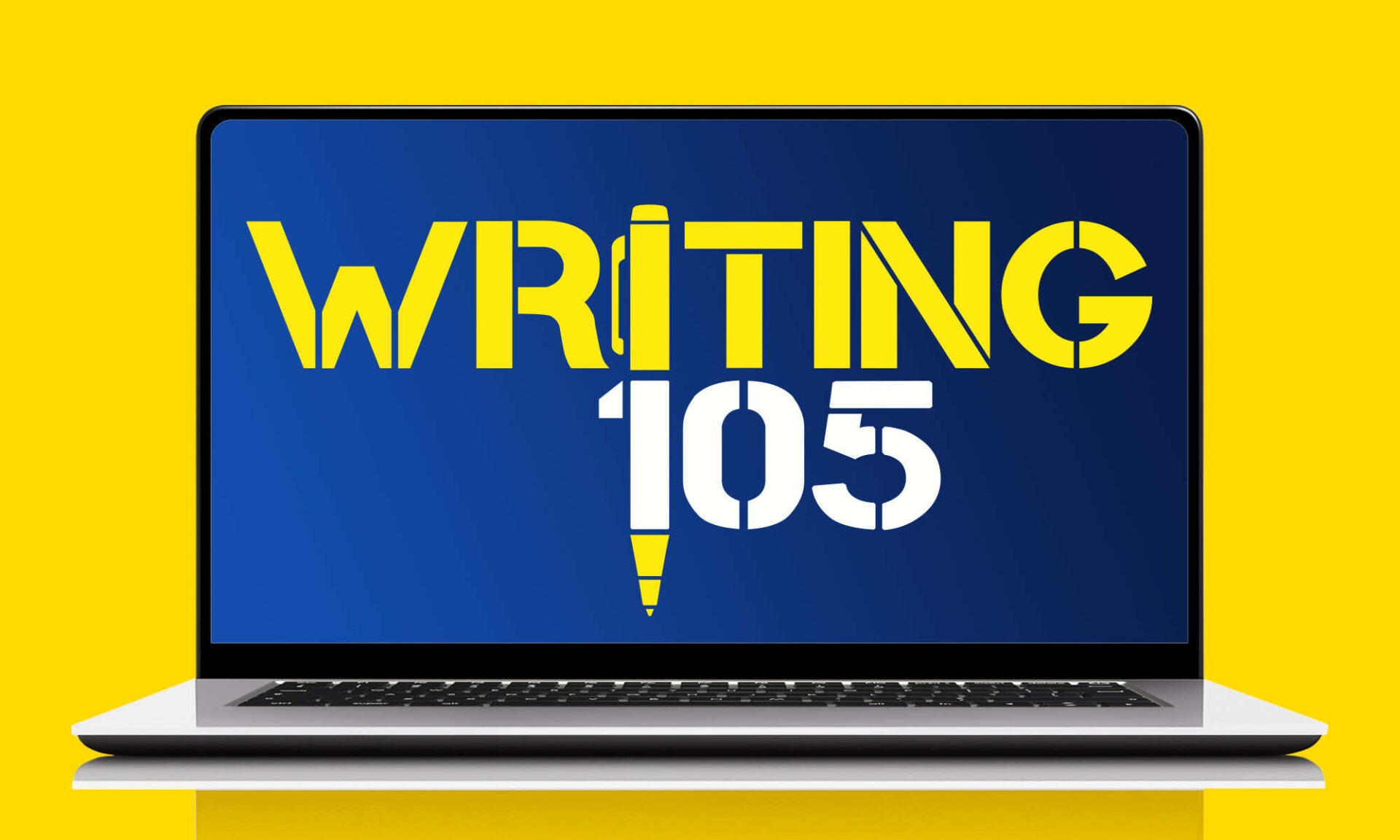The Rochester Curriculum’s only required course teaches writing skills that benefit undergraduate students throughout college—and well beyond, too.
Each year, thousands of courses are offered to undergraduates enrolled in the School of Arts & Sciences and the Hajim School of Engineering & Applied Sciences at the University of Rochester.
But only one course is required as part of the Rochester Curriculum: the primary writing requirement, or Writing 105: Reasoning and Writing. This four-credit course is run by the Writing, Speaking, and Argument Program (WSAP) and it teaches students fundamental and essential writing skills.
Whether you’re from China or California, Denmark or Denver, India or Indiana, this course is the first step for Rochester students on the road to becoming effective academic communicators—and join the broader community of researchers, scholars, and writers.
Writing 105 instructors frame their courses around particular topics, making it likely that students can write about a topic that interests them—or have their curiosity piqued by something they hadn’t considered before.

“Students pursue their passions or discover new interests within a vibrant intellectual community,” says Deborah Rossen-Knill, WSAP’s executive director. “They dig deep into the unknown and puzzle through uncertainty aided by research, argument, speaking, and writing in order to articulate, test, and refine their ideas.”
Writing 105 classes fill up quickly, so WSAP’s advice is to compile a list of several sections that appeal to you. If you miss your preferred section in the fall, fear not: most of the same classes are offered again in the spring. It is, however, strongly encouraged that you enroll and complete this course by the end of your first year at Rochester.
Here are four other things to know about the one required course at the University of Rochester.
Workshop with your peers, connect with your instructors
The average incoming undergraduate class at the University of Rochester has approximately 1,400 students. Yet Writing 105 classes are deliberately capped at 15 students per class, with some sections maxing out at 10 people.

With a handful of exceptions, each class is taught by one instructor, making for an interactive learning environment reminiscent of a writers’ workshop or retreat. This gives you the chance to get to know your teachers while developing your communication and writing skills with a cohort of peers.
“That’s very helpful to first-year students who need recommendation letters for various scholarships and other programs,” says Whitney Gegg-Harrison, an associate professor in WSAP and a Writing 105 instructor.
Focus on the write stuff

Students are required to write as part of nearly every undergraduate major throughout college—and Writing 105 helps prepare them with the necessary writing skills. Students who assume that going into STEM fields or performing arts means they won’t be doing any writing are in for a surprise.
“Learning to write is about more than communication,” says Paul Funkenbusch, a professor in the Department of Mechanical Engineering and with the Materials Science Program. “It conditions the mind to sort and prioritize information, to be precise, and to organize complex ideas into logical patterns. In my experience, the ability to write well is strongly correlated with the ability to think well.”
Maggie Scholer ’24, who earned degrees last spring in chemistry and environmental science, says her Writing 105 course titled “Modern Love” was formative for her college experience. “It not only refined my writing abilities but also improved my editing skills through our regular peer-review process for assignments,” she says.

The Pittsford, New York, native liked it so much that she became a content editor for an undergraduate research journal her sophomore year. “The writing skills I developed helped me immensely throughout my college career in writing lab reports, graduate school applications, fellowship applications, and even manuscripts for publication in scientific journals,” says Scholer, who is pursuing a PhD in atmospheric and oceanic sciences at the University of Colorado.
Vedant Agrawal ’28 is taking a 105 course this fall called “Post Human Future: The intersection of AI, Identity, and Ethics.” The Kolkata, India, native chose this section because he’s a fan of Isaac Asimov’s novels, “and the class subject matter seemed to intersect with those domains.”
But Agrawal is getting much more than he expected.
“Academic writing has a very particular style that can be quite formidable for first-year students,” he says. “This course has taught me the art of effective reading, and understanding how to decipher what the author is trying to say. I tend to interpret passages in ways that suit my biases, so the process of constructing arguments based on sources and citations has been extremely constructive.”
Take your pick—from dozens of topics
For the fall 2024 semester, there are more than 60 sections of Writing 105 focused on subjects ranging from friendship, mindfulness, artificial intelligence, and critical reading to horror stories, reality TV, video games, and monsters.
“They have to write about something, and it may as well be something they’re interested in,” Gegg-Harrison says. “When we’re interested in what we’re writing about, we tend to engage more deeply and feel more motivated to do the work. That leads to better learning and better writing.”
Know your A, B, Es

Speaking of variety, there are several sections in addition to the standard Writing 105 course. These sections match students to the level of support they need to develop their writing skills. The content, range of themes and topics, and requirements of the classes are the same.
- WRTG 105E, an extended version of WRTG 105, includes an additional recitation period, or a chance for students to review the material with their instructor, for those who want more support to meet the demands of college-level writing.
- WRTG 105A and WRTG 105B distribute the work of WRTG 105 across two semesters (at two credits each), allowing students more time to develop as academic writers.
- WRTG 103 and WRTG 104 are a sequence for students admitted into the English for Academic Purposes Program (EAPP).
Students who believe they are already proficient college-level writers may petition to satisfy the primary writing requirement by taking a course other than 105. But don’t wait: If you think you fall into this category, it’s strongly encouraged that you file the petition by the end of your first year.
Master writing skills, benefit for life
While Writing 105 is the only required course at Rochester, undergraduate students can expect writing to be incorporated throughout all four years of studies—regardless of their specific major. This ensures that all Rochester students graduate from the University with a demonstrable skill—effective written communication—that will serve them throughout their careers and lives.

“Writing 105 helped me became a better writer by introducing me to college writing expectations and allowing me to settle into my own best writing practices,” says Cooper Harris ’25, a religion and psychology double major from Westfield, New Jersey.
After his writing class ended, Harris joined a volunteer organization his professor was part of called “The Inspiration Project,” which helps people with disabilities write creative stories. “My role was to help transcribe ideas into a short story as a part of their collection of pieces,” Harris says.
He adds, “By being able to build a relationship with my instructor and get direct feedback on my writing due to the small class size, I was able to adjust to the expectations of professors when it came to research-based or creative writing. That has served me well throughout my time at Rochester.”
Level up your writing skills
Rossen-Knill, who heads up WSAP and teaches writing courses at the University of Rochester, is a certified word nerd. It’s little surprise then that she has coauthored several books on writing and related topics, including writing pedagogy, flow in writing, and grammar.

Students and instructors aiming to level up their writing skills might want to check out her recent books on the subject:
- Guidebook to Academic Writing: Communicating in the Disciplines (Routledge, 2024), which gives students the tools to navigate the linguistic features of various disciplines. The book emphasizes the humanities and sciences, but also discusses and covers the social sciences.
- Grammar and the Teaching of Writing: An Updated and Integrated Approach (National Council of Teachers of English, 2024), designed for instructors who want to go beyond grammar rules as they teach students to craft their own narratives.
- A Multidisciplinary Exploration into Flow in Writing (Routledge, 2024), which outlines the key features and definitions of flow instruction and offers ways to recognize and improve flow in writing.





